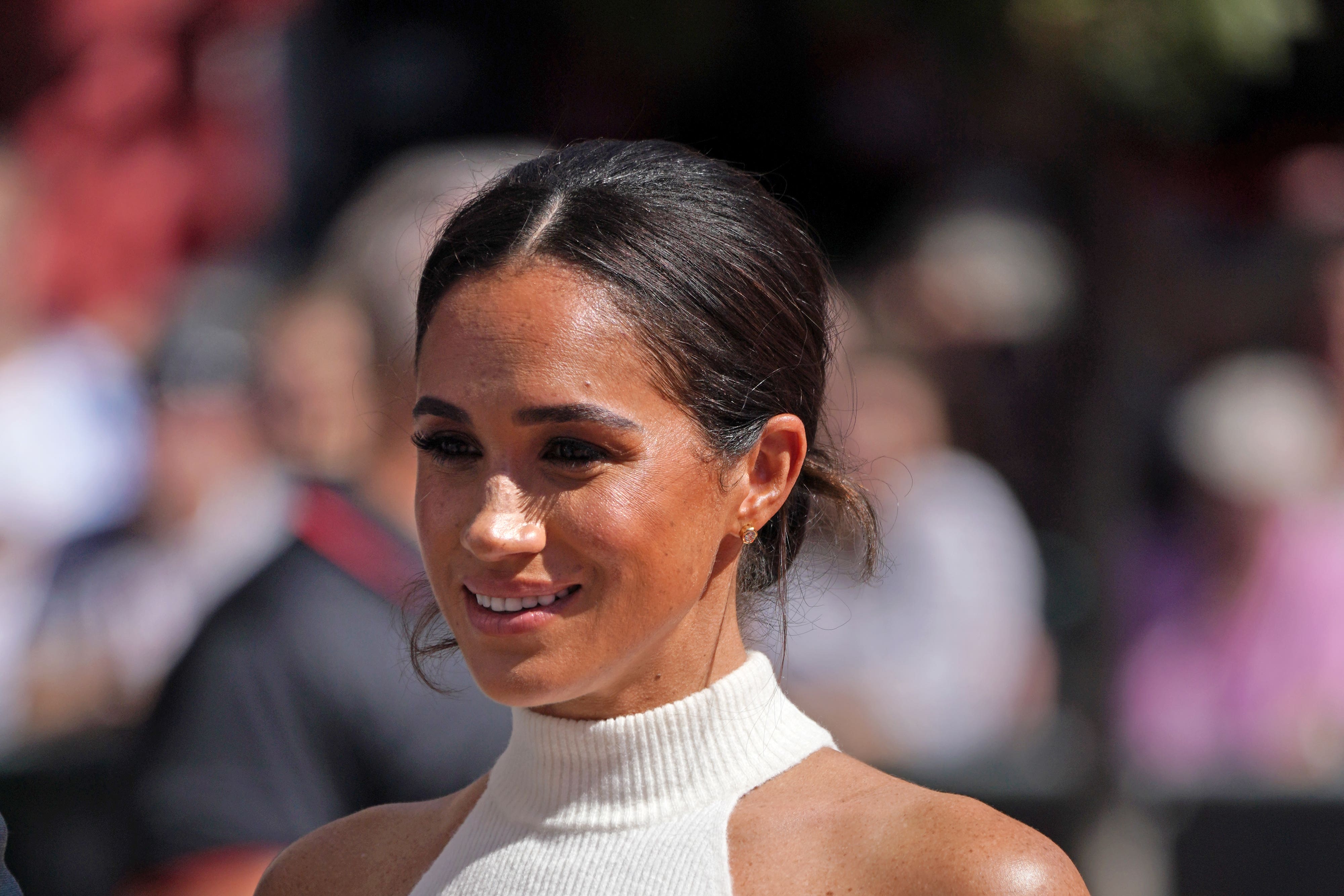Meghan disliked ‘all looks and little substance’ part of being ‘briefcase girl’
The former actress discussed her time working on a gameshow during her latest podcast episode.

The Duchess of Sussex has said she disliked feeling “forced to be all looks and little substance” during her stint as a “briefcase girl” on the US version of Deal or No Deal.
Meghan reflected on her time working on the gameshow in 2006 on the latest episode of her podcast which featured a chat with Paris Hilton about the labels of “bimbo” and “dumb blonde”.
She says there was a “very cookie cutter idea” of what the briefcase girls should look like and that it was “solely about beauty and not necessarily about brains”.
Meghan said she shared the stage with 25 other women and they were given spray tan vouchers each week.
She recalls a woman, who she says ran the show, telling her to “suck it in”.
Speaking at the start of the latest episode of Archetypes, Meghan said: “I ended up quitting the show. Like I said, I was thankful for the job but not for how it made me feel, which was not smart.
“And by the way, I was surrounded by smart women on that stage with me. But that wasn’t the focus of why we were there.
“And I would end up leaving with this pit in my stomach, knowing that I was so much more than what was being objectified on the stage.
“I didn’t like feeling forced to be all looks and little substance. And that’s how it felt for me at the time, being reduced to this specific archetype.”
Meghan added: “And there were times when I was on set at Deal or No Deal and thinking back to my time working as an intern at the US Embassy in Argentina, in Buenos Aires, and being in the motorcade with the Secretary of Treasury at the time and being valued specifically for my brain.
“Here, I was being valued for something quite the opposite.”
Meghan also talked about her hopes for her daughter, saying: “I want my Lili to want to be educated and want to be smart and to pride herself on those things.”
At the end of the episode, Meghan said she was embarrassed to admit that she had a “judgment” about Paris Hilton.
“And I don’t like having judgment. It doesn’t feel good. But I had to be real about that, because when I grew up, she was beautiful, rich and famous. ‘What could possibly be wrong with her life?’ I would think.
“And because my entire sense of self confidence was wrapped up in being the smart one and not the pretty one, I found the way to project all of my judgment and envy on to her.
“‘Who would want to act stupid?’ I would think. Envy can be a very dangerous thing, as can judgment.
“I was ashamed to admit that I harboured either of those feelings. So I talked to her and while she admits that she played into this dumb blonde persona, that she in part co-created with the media, she also revealed years of trauma that likely made it less easy to carve out her own owned identity,” Meghan said.
She said she found Hilton “refreshing”, adding: “Look, I know she’s made mistakes, I’ve heard about some of them, others not. This is not to be framed as the defence of Paris Hilton.
“But it is the humanisation of her because that’s where we leave judgments at the door.
“That’s when we can see a woman behind the archetype. I’m sorry for having judged her. I didn’t know her. And as I assured her, I wasn’t looking for a gotcha moment. I was looking for a ‘got you’ moment, as in the real you. And I think we did.”
Bookmark popover
Removed from bookmarks